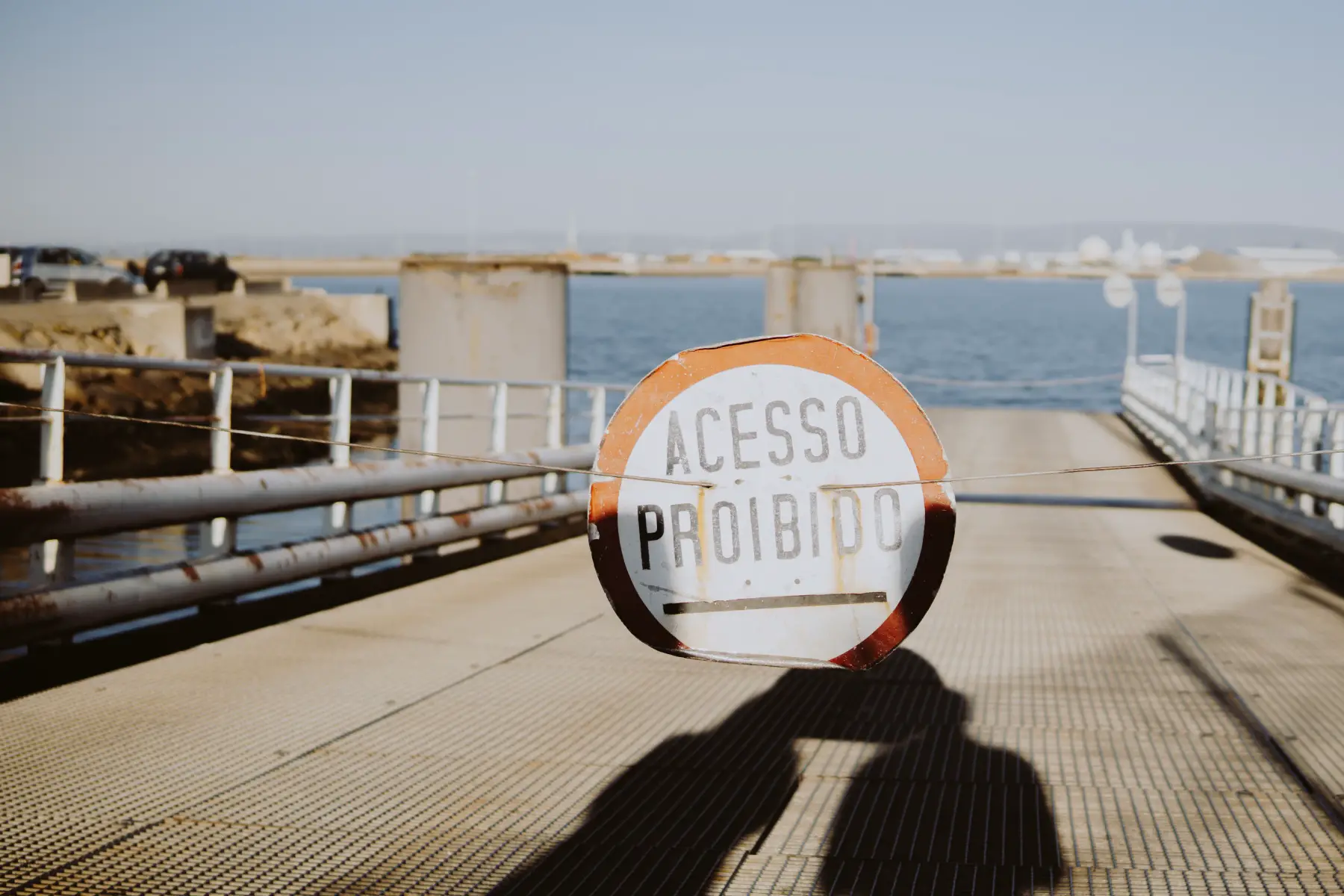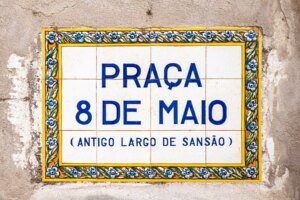More than 260 million people speak Portuguese, making it the fourth most spoken language in the world. It is an official language in four continents, including Europe, South America, Africa, and Asia. However, it is mainly spoken in Portugal and Brazil.
English speakers may struggle to pronounce certain words, especially when tackling nasal sounds. As a result, some may find it easier to learn the Brazilian accent as the intonation is more open when compared to European Portuguese. However, if you happen to be moving to Portugal, learning the local language and speaking it with the correct accent can help you significantly when it comes to adapting to your new life in the country and building stronger connections with the local community.
So, to help you get started, this article introduces you to the basics of the Portuguese language and provides the following information:
- What languages are spoken in Portugal?
- Where Portuguese is spoken worldwide
- The origins and history of the Portuguese language
- Portuguese dialects
- Portuguese pronunciation and phonology
- Portuguese grammar
- Interesting facts about the Portuguese language
- Learning the Portuguese language in Portugal
- Useful resources
Babbel
Babbel is a language learning app. They have a number of professionally-made courses covering language basics including vocabulary, pronunciation and more. With courses in 14 languages and counting, Babbel helps you improve your language skills when it suits your lifestyle.
What languages are spoken in Portugal?
Around 95.6% of people in Portugal speak Portuguese as their native or second language. Portuguese is the country’s main language, and Mirandese (Mirandês) is the second official language. The latter is essentially a mix between Leonese and Galician-Portuguese and is spoken mainly in rural areas around Miranda do Douro in northern Portugal.

A 2020 study revealed that Portugal was the second most polyglot nation (one which uses several languages) in Europe, only behind Sweden. Beyond their mother tongue, locals speak at least one more language, and the vast majority (91%) speak English. As a result, Portugal is among the countries with the highest English proficiency in the world, ranking in 9th place out of 111.
Other popular foreign languages include Spanish (52%) and French (39%). Therefore, if you are studying in Portugal, you will likely learn at least one of these subjects in school.
Where Portuguese is spoken worldwide
Portuguese is the ninth most spoken language worldwide. According to the Instituto de Camões, which promotes the Portuguese language, over 260 million people across the globe speak Portuguese as their mother tongue. Although there is a higher number of Portuguese speakers in Brazil, Portugal has the largest distribution, with more than 90% of the population speaking the language.
Portuguese is also an official language in African countries such as Angola, Mozambique, Cape Verde, Guinea-Bissau, and Equatorial Guinea, as well as Asian countries like Macao and Sao Tome and Principe. Most of these were former Portuguese colonies.
Additionally, there are countries where part of the population speaks Portuguese. For instance, there are 664,000 Portuguese speakers in the United States, while France has a whopping 813,000. However, according to figures from 2019, only a small percentage of students were learning European Portuguese as a second language in France (0.5%), Spain (0.3%), and Romania (0.1%).
The origins and history of the Portuguese language
Portuguese is a Romance language that originated in the Iberian Peninsula and is derived from Latin. As such, it shares many traits of other Romance languages, such as Spanish, Italian, Romanian, and French. Historically, Arabic also influenced the Portuguese language, which serves as a reminder of Portugal’s Muslim rule that lasted five centuries.

The oldest written document in Portuguese – the Testament of King Afonso II – dates back to 1214. However, the language was only standardized around the 16th century, when the first Portuguese grammar book was published. It was also around this time that the Portuguese colonization era began, spreading the language across Africa and other continents.
Portuguese dialects
Portugal’s dialect is known as European Portuguese, but there are many variants of the language across the world. The main difference is usually the pronunciation. For example, it is common for people in northern Portugal to replace their ‘v’ with a ‘b’ when pronouncing words such as vaca (cow), while people in the south tend to prolong their vowels.
The vocabulary can also be slightly different. For instance, in the north, sneakers are called sapatilhas, but in the capital, Lisbon, people call them ténis. The Portuguese islands of the Azores and Madeira also have distinct accents, which can be hard to understand for people from the mainland.
Brazil
Brazil and Portugal used to have very different written styles of Portuguese. However, following a new Portuguese Language Orthographic Agreement (Novo Acordo Ortográfico) in 2008, words were adjusted to create a more unified version of the language. For example, the word óptimo (great) lost the silent consonant ‘p’ and is now spelled as ótimo.

Still, there are other ways to distinguish both dialects. For example, in Brazil, the way people address ‘you’ is different. They tend to use você as an informal term, while in Portugal, that is considered formal. Generally speaking, Brazilians also use the gerund verb form more – for instance, ‘estou comendo‘ (I’m eating) – while the Portuguese prefer the infinitive ‘estou a comer‘. Some expressions may also be offensive. For instance, in Portugal, rapariga means ‘girl’, but in Brazil, it means ‘working girl’.
Africa and Asia
Interestingly, the dialects of Africa and Asia tend to be closer to European Portuguese. For example, in Angola and Mozambique, you will find slights variants of standard Portuguese. Other countries, meanwhile, have adopted a form of creole, which is a different language, even though some still consider it a dialect.
Portuguese pronunciation and phonology
As with most Romance languages, Portuguese uses the Latin alphabet. However, the pronunciation of the letters can vary significantly depending on the word it is used in and the accentuation. Essentially, vowels can be open, closed, reduced, or nasal.
There are five vowels in Portuguese, as follows:
- a – can range between ‘a’ in ‘cat’ (open) to ‘a’ in ‘postman’ (closed)
- e – between ‘e’ in ‘bet’ (open) to ‘e’ in ‘ear’ (closed)
- i – like ‘ee’ in ‘feet’
- o – between ‘o’ in ‘pot’ (open) to ‘o’ in ‘look’ (closed)
- u – like the last ‘u’ in ‘kung fu’
Accents in Portuguese words
Many Portuguese words also have accents, such as olá (hello). This marks where to stress the word, so it sounds something like ‘o-LA.’ In this example, there is an acute accent over the ‘a’ which represents an open pronunciation.
When a vowel has a circumflex accent on top, like in the Portuguese word português, the ‘e’ is closed. There are also many nasal sounds. For instance, you will hear this when an ‘m’ or ‘n’ follows a vowel, like in the word ontem (yesterday) and in words that have a tilde (~), such as cão (dog).
Notably, if the word has no accent, then the stress usually goes on the penultimate syllable. For example, comida (food) is pronounced ‘co-MI-da’. The stress changes to the last syllable in words that end with a diphthong (two vowels that form a single sound), like ‘au’ in carapau (mackerel). This also affects words ending with ‘i’, ‘l’, ‘r’, ‘z’, ‘im’, ‘um’, ‘ins’, and ‘uns’, like papel (paper).
Consonants in Portuguese
In Portuguese, consonants sound fairly similar to English. However, there are plenty of exceptions worth considering, such as:
- c – can sound like a ‘k’ when it is followed by an ‘a’ ‘o’ or ‘u’ or an ‘s’ when it follows an ‘i’ or ‘e’
- ç – used before an ‘a’, ‘o’, or ‘u, it sounds like an ‘s’
- g – usually a ‘g’, unless it is before ‘i’ and ‘e’, then it sounds like a ‘j’
- h – usually silent in Portuguese unless it is combined with an ‘l’ or an ‘n’, in which case it will sound kind of like a ‘y’
- m and n – similar to English, but they sound more nasal when they follow a vowel
- q – in Portuguese, this makes a ‘k’ sound
- r and rr – ‘r’ has a hard sound when at the beginning of a word or when combined with another ‘r’. If a single ‘r’ is in the middle of a word, it has a softer pronunciation.
- s and ss – usually pronounced like an English ‘s’, but it can also be pronounced like a ‘z’ or ‘sh’ depending on the word
- z – sounds like a ‘z‘, unless it’s at the end of the word, in which case, it’s more of a ‘sh’ sound
- x – can vary from an ‘s’, ‘z’ ‘ks’, or ‘sh’ sound depending on the word
Portuguese grammar
Nouns
In Portuguese, nouns have two genders – feminine and masculine. While there are a few exceptions, generally feminine nouns end in a, and masculine nouns end in o. The article used before the noun also changes according to gender and if the word is singular or plural. For example:
- uma banana – a banana
- um vaso – a pot
- a janela – the window
- o café – the coffee
- os pratos – the plates
Words ending in -ã, -e, and -iz can be feminine, too. For instance, irmã (sister), saúde (health), and atriz (actress). There are also some nouns ending in –a that are masculine, such as mapa (map).
Verbs
Portuguese verbs are one of the hardest things to learn. A regular verb can have more than a dozen variants, although only a few get used on a daily basis. Essentially, the end of the verb changes according to who does the action and when the action takes place. Like most languages, there are different verb tenses to indicate past, present, or future.

In Portuguese, verbs can be divided into three groups: those ending in –ar, –er, and –ir. Each group has different rules and exceptions, so you will need to dedicate some time to learn each of them. Luckily, there are many Portuguese language resources that can help you practice.
Similar to English, Portuguese tends to use a subject-verb-object sentence structure. So, the person doing the action appears at the start of the sentence, followed by the action and the object it affects. Here is an example of how it would sound:
A Ana quer um café (Ana wants a coffee)
Asking questions in Portuguese
In Portuguese, questions are represented with a question mark and have an inflection at the end when spoken. For instance:
Queres uma maçã? (Do you want an apple?)
Another way to ask questions is to use a question word, such as quem? (who?), o quê? (what?), quando? (when?), qual? (which/what?), porquê? (why?), onde?/aonde? (where?). Below is an example:
Quando é que chegas? (When do you arrive?)
Onde é que estás? (Where are you?)
Useful Portuguese expressions
Here are a few other phrases that may be helpful to learn when you move to Portugal:
- Olá – Hello
- Bom dia – Good morning
- Adeus – Goodbye
- Tudo bem? – How are you doing?
- Como te chamas? – What’s your name?
- Chamo-me Ana – My name is Ana
- Por favor/se faz favor – Please
- Obrigado/a –Thank you (male speaker/female speaker)
- De nada – You’re welcome
- Desculpe – Sorry or excuse me
- Quanto custa? – How much is it?
- Onde fica a casa de banho? – Where is the bathroom?
Formal versus informal Portuguese
Similar to some other European languages, you can address people in different ways in Portuguese, depending on how well you know them. There are two levels of politeness in European Portuguese. However, in Brazil, this can vary depending on the region. In general, you use tu if you are addressing a friend and você for someone you don’t know. For a group, you tend to use vocês, which can be either formal or informal. If you want to be extra formal, however, you can say o senhor or a senhora (Mr or Miss) or the plural form os senhores and as senhoras.
The verb endings will change according to the type of ‘you’. For example:
- Tu comes – you (one person, informal) eat
- O senhor come – you (one person, formal) eat
- As senhoras comem – you (plural, formal) eat
- Você come – you (one person, formal) eat
- Vocês comem – you (plural, informal/formal) eat
Interesting facts about the Portuguese language
- Renovated alphabet: The increasing use of English words led to the letters k, y, and w being added to the Portuguese alphabet in 2009
- Connection with Japan: Many Japanese words derive from Portuguese, such as Saturday (sábado in Portuguese and sabato in Japanese)
- Arabic influence: More than 10,000 Portuguese words have Arabic roots, many of which start with ‘al’; for example, algodão (cotton) or almofada (pillow)
Learning the Portuguese language in Portugal
While many people in Portugal will speak English, learning the local language is a great way to connect with the locals if you are planning on moving to the country. It will also increase your chances of getting a job and help when it comes to dealing with administrative tasks, such as starting a business or even gaining Portuguese citizenship.
Fortunately, the Portuguese government provides free language learning courses for foreigners. These are known as Portuguese Host Language courses or PLA. In the past, 40% of students couldn’t complete this training, due to the classes clashing with their working hours. However, recent changes have been made to improve accessibility to the program. The Instituto Camões also offers online courses in Portugal for a small fee as well as in-person classes in its institutes overseas. Many Portuguese universities also offer in-person lessons in Portugal.
One of the easiest ways to start learning Portuguese is to download a few language-learning apps such as Babbel, Memrise, Drops, or Practice Portuguese. However, it is important to bear in mind that some of these only offer Brazilian Portuguese.
And don’t forget, learning a new language takes time, so finding different ways of absorbing it, such as reading books or listening to Portuguese music, is also a great idea.
Useful resources
- Instituto Camões – a public institution that promotes the Portuguese language worldwide
- Plataforma de Português Online – an online platform, created by the High Commission for Migration, that allows you to learn Portuguese
- Talk the Streets – a YouTube channel that explains how to learn Portuguese from a foreigner’s perspective
- Portuguese with Leo – a YouTube channel and podcast that teaches you Portuguese from a local angle





